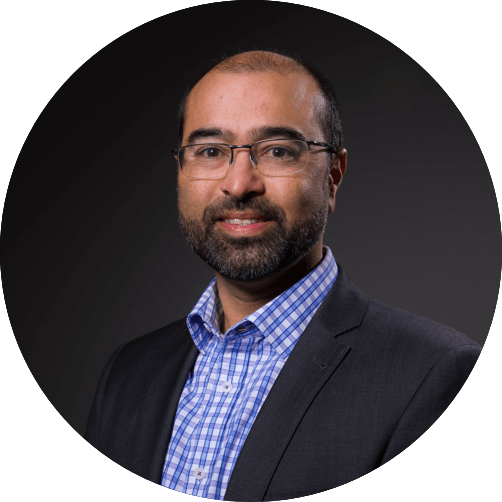Bariatric Surgery
We perform all types of bariatric surgery and we want you to benefit from our extensive experience.
What is bariatric surgery?
Bariatric Surgery
"We would consider treating people with a BMI over 35 or a BMI above 30 with medical conditions caused or worsened by weight and improved by weight loss such as heart disease, type 2 diabetes, high blood pressure, high cholesterol, sleep apnoea, arthritis and even cancer. In fact there are about 200 or so recognised medical conditions that possibly fit into this category. We would consider lower BMI's in individuals of certain ethnic origins eg. South East Asians, who have a lower normal BMI range than caucasians."
"BMI is a way to track obesity rates and allow statistical analysis, but it has its drawbacks. It does not discern between fat mass and muscle mass so a power athlete may be shown to have abnormally high BMI but is not unhealthy. Similarly, an individual with a chronic illness or bullaemia may have a normal BMI but very little muscle and significant bone loss; and so are also not well. BMI tables also do not take account of race, age or sex. It is only a broad guide.
We have an MRI validated, body composition analysis scale in our Wexford consulting suite that will accurately assess and track muscle and fat mass as well as weight and BMI. Access to this Body composition analyser is free to all our patients and included as part of their routine follow up care."
"Bariatric surgery has proven to be a very effective weight loss method. In fact for the obese individuals (those with a BMI >30) it is the only effective long term significant weight loss modality when performed accurately and appropriately. We believe you deserve the most advanced medical and surgical care. So if you are thinking about weight loss surgery, please make an appointment with our friendly staff, and we will assess your individual needs."
Types of bariatric surgery
Who will perform your Bariatric Surgery?
"Our surgeons have undertaken at least an extra two years of specific subspecialty training in “Upper Gastrointestinal Surgery”. That is additional specialised training on top of our fellowship in General Surgery. Our bariatric surgeons perform not only weight loss surgery, we also perform very technical cancer and non cancer surgery on the organs of the Upper GI tract. (Oesophagus, Stomach, Duodenum, Liver, Gallbladder, Bile Ducts, Pancreas and Spleen)."
"A broad general expertise as a surgeon is pivotal during surgery. We regularly perform major operations or emergency surgeries involving the oesophagus, stomach and intestines. We are highly trained and able to access and perform complex surgeries on these organs, so you're in excellent hands for your weight loss procedure."
The Upper GI West surgeons regularly attend and present at scientific meetings. They visit and collaborate with other leading specialists in Australia and overseas to keep up to date with the latest developments. We have also been pivotal in developing and delivering techniques for the treatment of complications related to many Upper GI conditions.
"We operate in major tertiary hospitals and other private hospitals. These include St John of God Murdoch#, St John of God Subiaco#, The Mount#, Fiona Stanley* and Fremantle* Hospitals. They all have the required resources to support these types of surgery. SJOG Murdoch has the only private emergency department in Perth. Our surgeons provide cross cover for each other to help ensure a member of our team is available in the event of any queries or problems."
* Unfortunately weight loss surgery is not currently supported or funded by the Health Department at Fiona Stanley and Fremantle Hospital thus we are unable to offer procedures to public patients at these hospitals.
# We will selectively consult and offer weight loss surgery to uninsured self financed individuals at the private hospitals named above
Key Points
What are the new ideas on how Bariatric Surgery works?
Traditionally bariatric operations were classified as being restrictive, malabsorptive or a combination of the two. In fact even on some eminent bariatric society and individual websites and communications they are still labeled like this.
This is an outdated classification and fails to accept research findings and grasp some basic human traits!
These operations work by emptying quickly and in a controlled manner.They also work by altering the pressure around altered upper stomach. They will only work effectively if they are constructed accurately. Too wide and the pressures will not be the same, not uniform and they won't empty efficiently.
When they are constructed well they work well if you do your part. By altering the pressure in the upper stomach hunger goes and early satiety is induced. By emptying quickly and in a controlled manner undigested food and bile mix in different parts of the intestine. This causes profound hormonal and receptor changes in the body which in turn also help satiety and alter metabolism in a completely different way to just dieting. There is also a change in taste and food reward brought about in part by hormonal changes in saliva. Also because of the hormonal and receptor changes the body deals with calories inefficiently ("does not go into starvation mode") for the 6-9months following surgery so you will get substantially more weight loss for the same high protein low calorie diet than an individual of same weight who has not had surgery.
How effective is weight loss surgery?
"Unfortunately, surgery alone does not guarantee success. For good results, you must also be prepared to follow healthy dietary and exercise principles. You should also follow up with your surgeon, dietitian and bariatric physician. Studies consistently show that patients attending regular follow up achieve greater weight loss. Bariatric surgery is not a magical cure for obesity but it can and should be highly effective. It is definitely not an easy option. We say this all the time to our patients. You have to be prepared for a radical lifestyle change."
Surgery brings about profound sensory, taste, reward, hormonal, receptor and metabolic changes in your body and to obtain optimal results you need to:
- Eat only when your body indicates it needs energy
- Work out how to get your daily protein requirements in advance with the minimal additional calories as possible from other food sources
- Stop eating when you are content and not eat until you are full
- Keep as active as possible
- Keep hydrated and take your recommended multivitamins and minerals daily
How soon can I have the surgery?
After your initial visit to the surgeon, you will need to complete a comprehensive preoperative assessment in keeping with national and international guidelines. This is important to ensure you are optimally prepared and to minimise any potential risks of surgery.
We will arrange for you to see our bariatric physician and dietitian. We also will arrange your blood tests and an endoscopy procedure:
After you have completed your full assessment as described in the 3 points above, you will have a follow-up appointment with your surgeon. This is when your surgeon will talk about the bariatric operation in more detail. This is another great time to ask any further questions you might have.
By the end of this consultation, you should have a firm understanding of your surgery including the benefits and potential risks. When you are ready to proceed, we will make arrangements for the procedure to take place.
In routine cases, the entire process usually takes between four to six weeks. This is from the initial consult, through to your bariatric surgery being performed. We like to keep to these time frames so you can have time to come to terms with the lifelong requirements, find out as much as you need to and ask as many questions as you feel you need to before committing to a permanent and non reversible procedure.
Do I have to go on a VLCD before the surgery?
A VLCD is a very low-calorie diet that can be achieved in a variety of forms and flavours:
At Upper GI West, we recommend either Optifast (available at most Pharmacies) or Formulite (which is available at many pharmacies including the Wexford Pharmacy on the lower ground of the Wexford building).
These VLCDs contain all the essential nutritional requirements to completely replace other food but with far fewer calories. A VLCD is highly effective in decreasing the size of an enlarged fatty liver. This is important because an enlarged liver lies over the stomach and needs to be moved out of the way to perform the surgery. The more difficult the access to the stomach the greater the risk with surgery. In some cases, the surgery may have to be abandoned if the upper stomach cannot be safely accessed.
Your surgeon and dietitian will advise if a VLCD is required based on your weight, fat distribution, comorbidities, metabolic syndrome and blood tests.

What are the costs of bariatric surgery?
To have your bariatric surgery performed, there will be a surgeon and assistant fee, the anaesthetist fee and the hospital fee. Pathology and pharmacy fees may also occur.
If you have a full hospital cover that includes bariatric surgery, most hospital and equipment charges are covered. Depending on your policy, there may be an excess amount payable to the hospital. You should check with your insurance company in advance whether you are covered for these procedures. Please access our fee schedule for bariatric and metabolic surgery here.
I am ready for bariatric surgery. What are the next steps?
Please check that you are ready to proceed:If you are ready to make this important life-changing decision, please phone our office (08 6189 2500) for an appointment.
At the initial consultation, we will:
- discuss the surgical options and the requirements for success
- commence our comprehensive assessment process
- answer any other questions you may have and begin your pathway to a better health and lifestyle.




